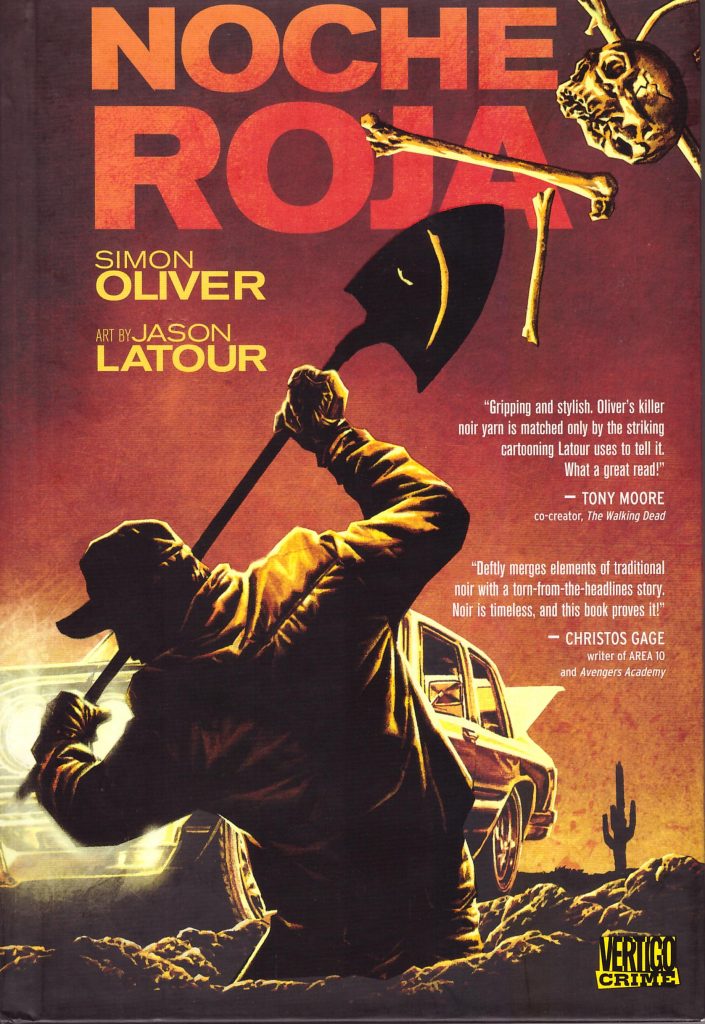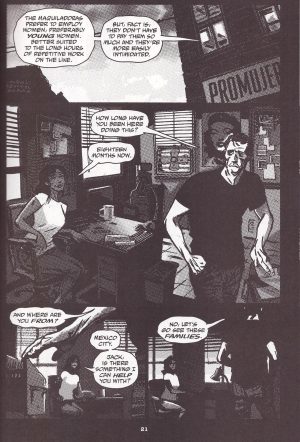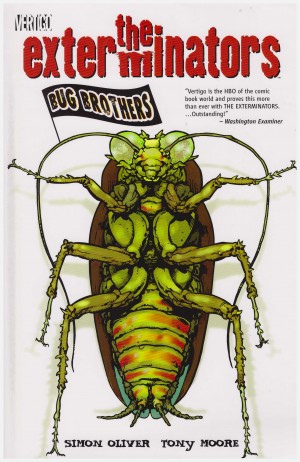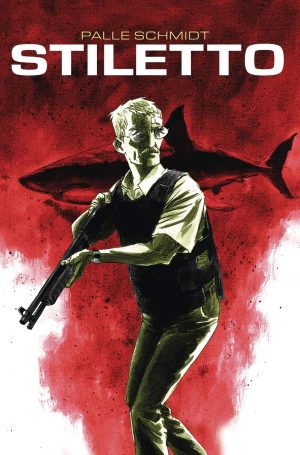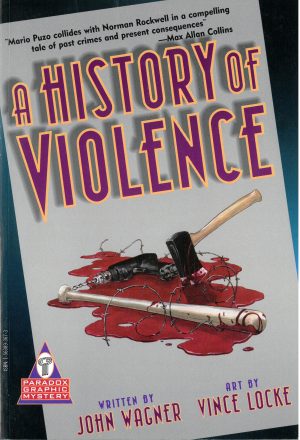Review by Ian Keogh
Simon Oliver and Jason Latour’s noir thriller sets a very dark tone from the start, sparing no sensibilities in detailing exactly how the mutilated corpses of young Mexican women have been turning up. The initial assumption on the part of women’s aid worker Paloma Flores is that it’s to do with resentment and injured male pride that these women are able to find employment. She needs an outsider to investigate, and settles on American Jack Cohen, a habitually unemployed private eye operating just north of the border. It doesn’t take him long to discover the threatening conditions in which Paloma operates, that the families of the victims are intimidated, and that there’s more to his being hired than she’s told him. Jack was once a cop, and is still haunted by events in Mexico eleven years previously. Is this his opportunity to lay some ghosts to rest?
A sense of social responsibility infuses Noche Roja (Red Night in English), as during the course of Jack’s investigations Oliver runs through the conditions under which Mexican women are employed by American factory owners. They’re appalling, and that’s even before the involvement of a sadistic killer. Latour sets the right mood, his consistently dark pages accentuating the consistently dark atmosphere, switching to a subtle letratone effect to deliver events from the past. It’s more effective than not, but the downside is never really knowing exactly how some people look even after reading an entire story about them. Latour shades faces, and the identifiers are sunshades, hair and distinctive clothing.
Jack’s convincingly portrayed with a complex mixture of guilt about the past, coupled with an inner knowledge of his own weakness. He’s haunted by the horror of what an hour’s indulgence permitted, and also the sense of unfinished business, yet after all the years will he now be strong enough to see things through in the face of constant intimidation?
The cover’s symbolic, representing Jack digging up the dirt that finally lays his ghosts to rest. In doing so Oliver presents a festering heap of corruption and depravity, almost every man featured somehow compromised, and most considering themselves untouchable. The noir theme is followed through to the end, with hardly anyone winning, and as in the real world the lesser of two evils being acceptable. It’s not a happy read, but is a good crime story.
